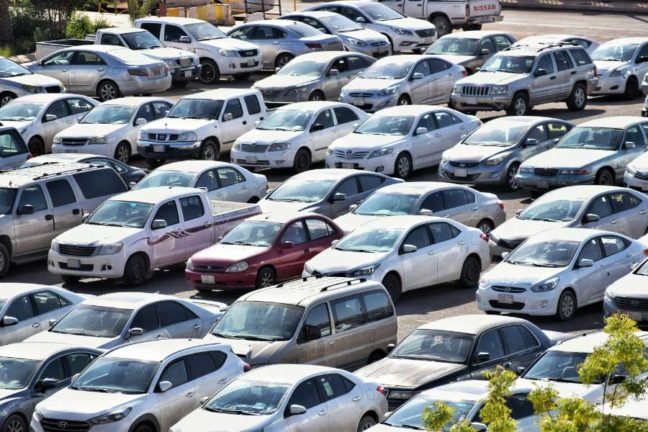Car accidents are distressing events that can bring about numerous legal and logistical challenges. After a collision, law enforcement officers often have the authority to impound vehicles involved. Police officers may order the impounding of a vehicle to ensure safety and preserve evidence after an accident.
If your car was impounded after an accident, you may want to hire a car accident attorney in Virginia Beach. To help you understand the basics of post-accident car impounding, this article delves into the reasons behind this practice, the process involved, and your options if your vehicle is impounded after a collision.

What Happens If Your Car Is Impounded?
If your vehicle is not drivable after an accident, the police might tow it, particularly if you’re too injured to arrange for this yourself. However, if you are able to make the necessary calls at the scene, the police may allow you to choose the tow company and destination for your vehicle.
Most people involved in a car accident can leave the scene unless the police decide that it’s unsafe for them to continue driving their vehicle.
Why Do Police Impound Cars After an Accident?
Ensuring Safety and Protecting Evidence
One of the primary reasons police impound cars after an accident is to ensure the safety of everyone involved and protect potential evidence. After a severe collision, a damaged vehicle may be hazardous due to leaking fluids, sharp debris, or unstable structural integrity. Impounding the vehicle helps prevent additional accidents and injuries at the scene.
In cases of serious accidents resulting in injuries or fatalities, law enforcement may impound the vehicles to preserve evidence for investigations and potential legal proceedings. Vehicles may contain vital information, such as data from onboard computers or dashcams, which can help determine the causes of the accident.
Compliance with State and Local Laws
State and local laws significantly influence the decision to impound a vehicle after an accident. These laws vary, but they generally allow law enforcement to impound vehicles in specific situations, such as:
- Driving without a valid license: If the driver involved does not have a valid driver’s license, the vehicle may be impounded.
- Driving under the influence: If the driver is suspected of being under the influence of alcohol or drugs, the vehicle may be impounded according to ‘implied consent’ laws.
- No proof of insurance: In many states, driving without valid proof of insurance is illegal, and law enforcement may impound a vehicle if the driver cannot provide evidence of insurance.
- Arrest of the driver: If the driver is arrested for unrelated charges, the vehicle may be impounded, especially if there is no one available to take responsibility for it.
- Outstanding warrants: An investigation may reveal outstanding warrants or other legal issues related to the driver, leading to vehicle impoundment.
What to Do If a Police Officer Impounds Your Vehicle
If your vehicle is impounded by law enforcement, following certain steps will make it easier to reclaim your car or file an insurance claim. Here’s what you should do:
Speak With Law Enforcement
Contact the officer who impounded your vehicle to understand the reasons behind the tow.
Document the Scene
Take photos of the accident scene, including your impounded vehicle and the other car. Record the personal details of the other driver, passengers, and any witnesses.
Contact Your Insurance Provider
Inform your insurer about the accident, regardless of fault. Notifying your insurance company is crucial as they may cover towing fees and injury-related costs.
Moving Forward
Police impound vehicles after accidents to ensure public safety, preserve evidence, and comply with legal requirements. Understanding the reasons behind impoundment and the steps to recover your vehicle–such as contacting law enforcement, gathering necessary documentation, paying fees, and addressing legal matters–can help you navigate this challenging situation.
Staying informed and proactive can expedite the process and ensure a smoother experience, as can hiring a skilled car accident lawyer from Coastal Virginia Law!
Wondering if you may be liable if your spouse causes a car accident? Be sure to read our latest post.



